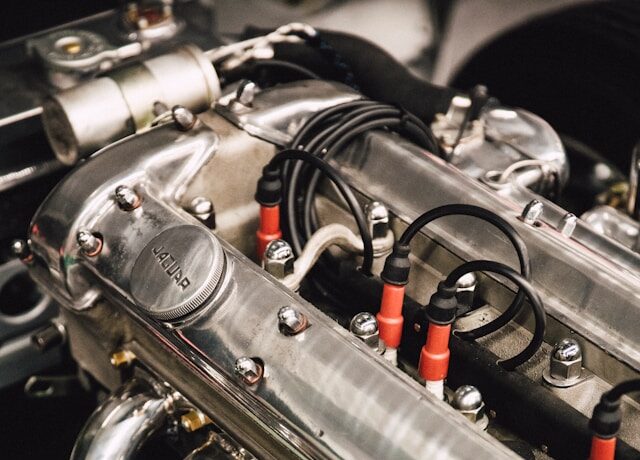Start your engines and prepare to explore the intriguing world of automotive components! This blog post will solve the riddles around those crucial parts that keep your car functioning properly, whether you’re a gearhead or just someone who wants to know what makes your car work. Fasten your seatbelts and embark on an exciting tour beneath the hood as we examine everything from spark plugs to pistons!

Advice on Taking Care of the Engine Parts in Your Car
The engine of your car is like the heart of the vehicle, so maintaining car engine parts is essential to durability and smooth running. Checking and changing the oil on a regular basis is crucial maintenance advice for engine components. By lubricating the moving parts, clean oil helps reduce wear and friction.
Monitoring the cooling system is a crucial part of engine maintenance. Verify that the radiator and hoses are leak-free and that the coolant levels are sufficient. Engine components can sustain severe damage from overheating.
For optimum operation, air filters must also be routinely inspected and replaced. Airflow restriction from a clogged air filter can result in reduced fuel efficiency and possibly even damage to other engine parts.
Remember that spark plugs are little but mighty components that are essential to getting your car started. To keep fuel economy and avoid misfires, replace them as your manufacturer recommends.
Additional Crucial Engine Components
There are a number of crucial components that work together in automobile engines to maintain optimal performance. The engine’s operation depends on a number of other essential parts in addition to pistons and spark plugs.
The crankshaft is one such component that changes the pistons’ up-and-down motion into rotational motion. The rotation of your car is what eventually drives the wheels and maintains your forward motion. For optimum performance, the camshaft regulates the engine valves’ opening and shutting, which affects the flow of exhaust and air intake.
All of these parts are kept in good synchronisation by the timing belt or chain, which guards against misalignment damage. Lubricant is circulated throughout the engine by the oil pump to lessen friction and wear on the moving parts.
Additionally, by dispersing heat produced during combustion, the cooling system aids in controlling engine temperature. In the absence of these vital engine components operating together, your car would not be able to perform as intended when driving.
Typical Engine Issues and How to Spot Them
Vehicle engines are intricate systems that may experience a number of problems in due course. Overheating is a typical issue that can be identified by steam emanating from beneath the hood or a rising temperature monitor. Unusual noises, such as pinging or knocking, should also be taken seriously as they may indicate issues with the combustion process.
Fluid leaks under your automobile could be an indication of a cooling system, engine, or gearbox leak. Keep an eye out for any performance variations, such as diminished power or harsh idle. It’s critical to look into the matter further if you detect any odd scents inside the cabin, such as burning rubber or petrol.
Warning lights on your dashboard should not be disregarded; they frequently point to major engine issues that need to be fixed right away. Your engine can remain trouble-free for many years to come with regular maintenance and inspections.

Pistons’ Function in an Engine
As we come to the end of our exploration of the secrets surrounding car engine parts, it is evident that keeping your car operating at peak performance requires a grasp of how these parts interact. Pistons are essential components of engines because they transform fuel into energy that powers vehicles. You can guarantee that your car will run smoothly and effectively for many years to come by giving all engine parts regular maintenance and taking quick action when something goes wrong. Recall that the secret to keeping your car operating at its peak is frequent maintenance!





